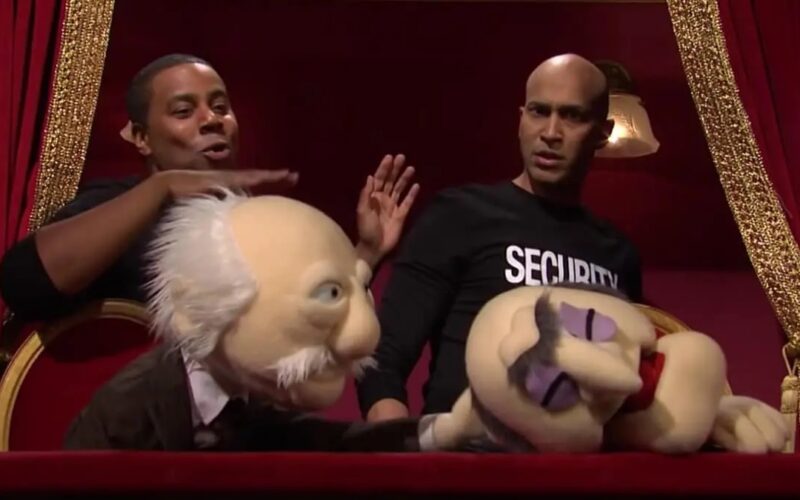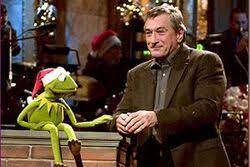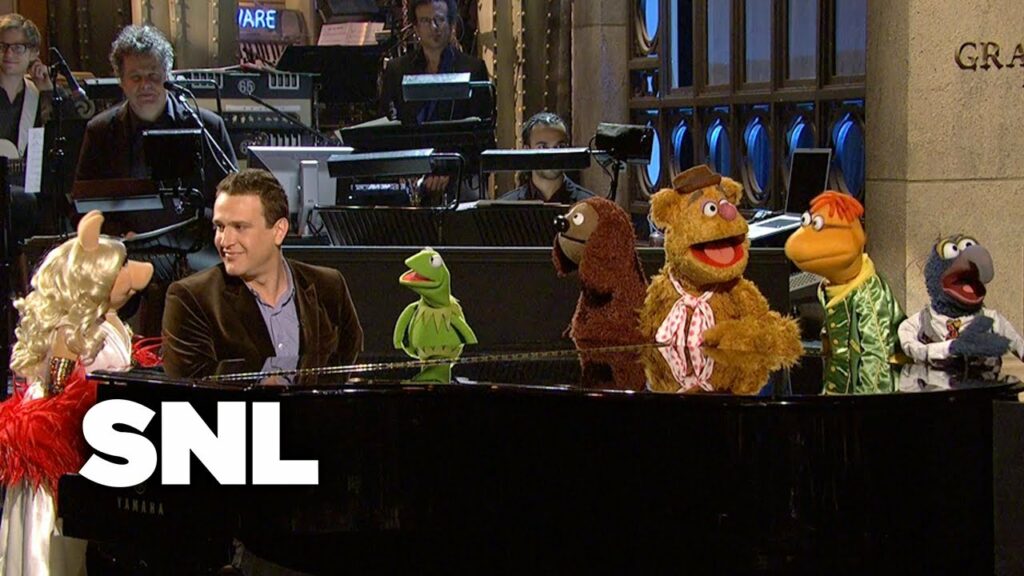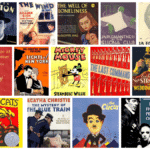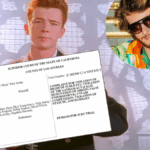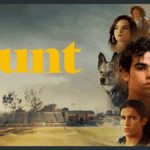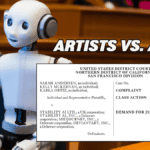“Saturday Night Live’s” literal beat down of “The Muppet Show” so closely resembled the classic Jim Henson characters that some viewers thought the Muppets had really made an appearance on the show. Did SNL go too far?
Parody is tricky, both as an art form and as a matter of copyright law. Any effective parody requires the audience to immediately recognize the underlying work held up to ridicule. At the same time, the differences between the source material and the parody version need to be obvious enough for the audience to understand that they’re seeing a spoof.
Two pop culture juggernauts—”Saturday Night Live” and “The Muppet Show”—collided on Saturday night in what has already become one of SNL’s most talked-about sketches in years. And putting aside its pure entertainment value, the sketch also raises some interesting questions about just how much of an original work may be taken before parodic fair use crosses the line into copyright infringement.
The skit starts with what’s supposed to be a classic episode of the 1970s “The Muppet Show,” which, since Disney now owns the characters, is available on Disney Plus. But before Kermit the Frog and guest star Lily Tomlin can kick off the show, the cantankerous Statler and Waldorf are repeatedly warned by security personnel (Kenan Thompson and guest host Keegan-Michael Key) to stop their incessant heckling.
I don’t want to be accused of spoiling anything, so take a look at the sketch below if you haven’t seen it yet (or, as the “New York Times” suggested, “[e]njoy it before Disney’s I.P. lawyers get the chance to review it”):
Now, having watched the skit, it should be clear to most people that these are not the actual Muppets. Putting aside the fact that they’re voiced by cast members Kyle Mooney (Kermit), Mikey Day (Waldorf) and Beck Bennett (Statler), and the puppeteering isn’t exactly top notch, “real” Muppets wouldn’t subject their senior citizens to a merciless beat-down by overzealous security guards.
Nevertheless, almost immediately after the sketch aired on the East Coast, a number of Muppets fans began to weigh in on social media, wondering if they had just seen an authorized (albeit unconventional) appearance by Kermit and Co. on national television:
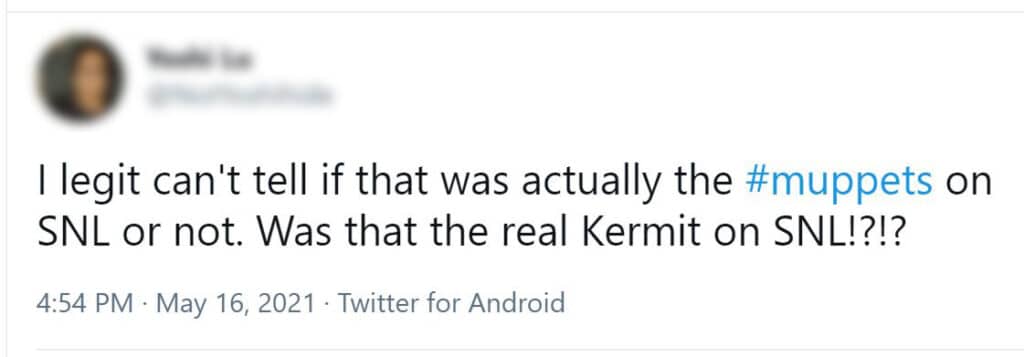
Some fans were happy to see the characters on SNL, but thought they looked a tad “off:
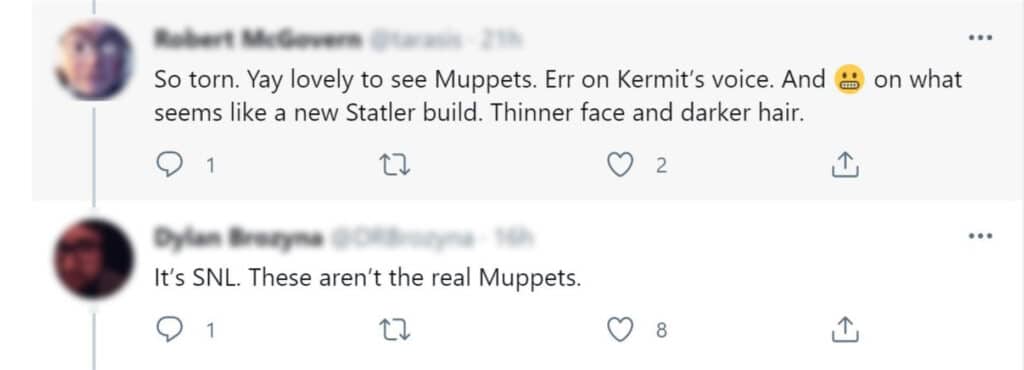
This fan, apparently believing that the characters had actually been on the show, blamed Disney for changing their appearance:
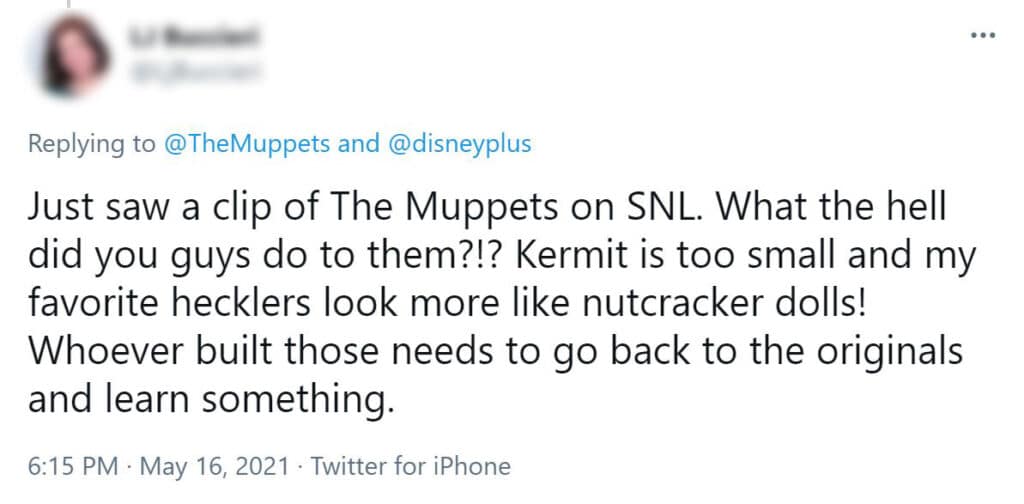
Others thought the Muppets weren’t given the credit they deserved during the show’s curtain call:
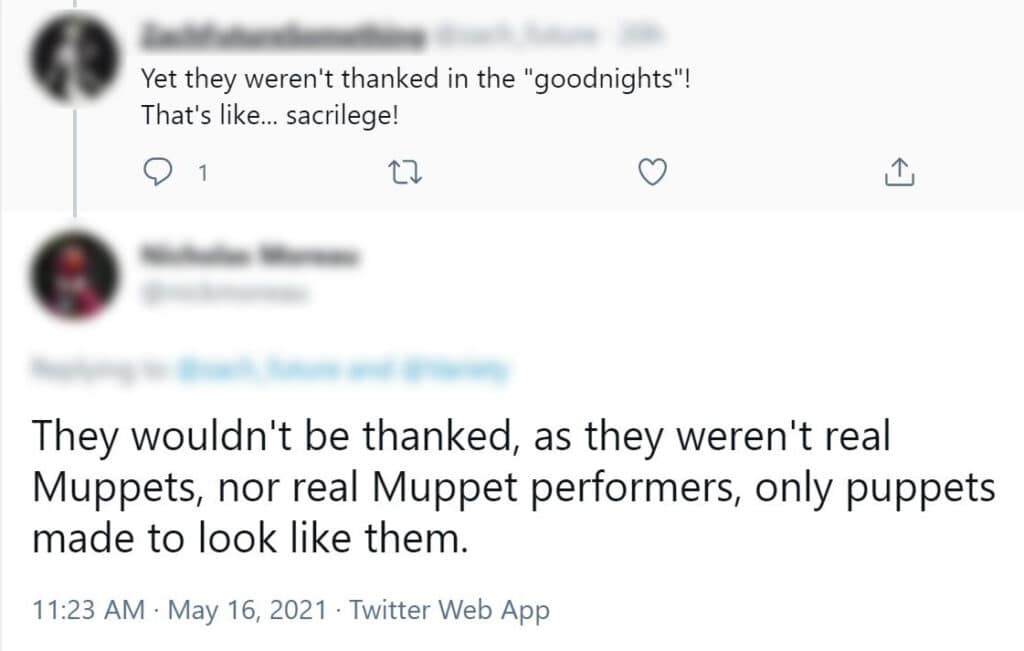
Even the media appeared to be confused. Several outlets, including “Variety,” reported that the Muppets had made a “surprise appearance” on SNL:
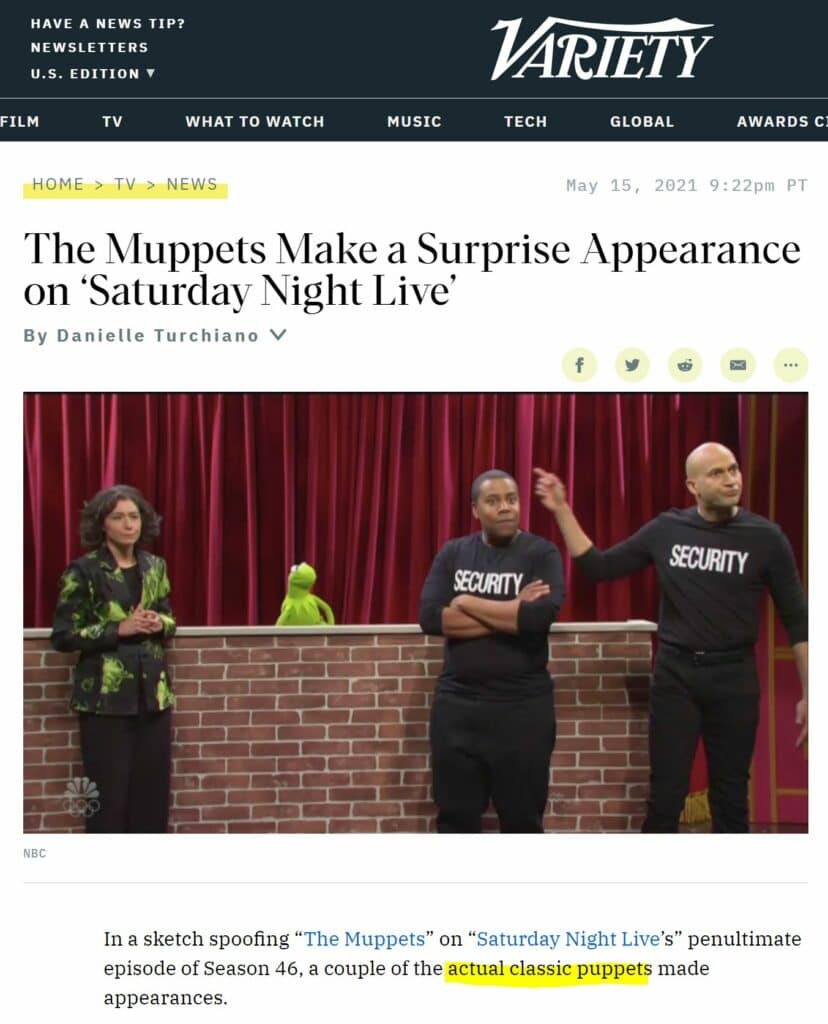
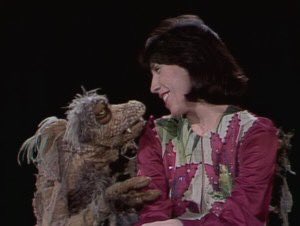
To be fair, there’s a lot of history between the Muppets and SNL that may have contributed to some people believing they had just seen the “real” characters. After all, authorized versions of the Muppets have appeared numerous times on “Saturday Night Live” over the years. In fact, during the show’s first season in 1976, Jim Henson created and performed a whole new group of adult Muppets which appeared in a recurring sketch called “The Land of Gorch.” The skits weren’t particularly good, the writers hated working on them, and the whole thing only lasted for half a season before Henson ended his partnership with the show.
Over the next four decades, classic Muppets like Kermit the Frog have appeared on several episodes of SNL. In 2011, when “Saturday Night Live” guest host Jason Segel was promoting the new Muppet movie, he was joined by several Muppets from the film, voiced and performed by their real actors and puppeteers.
Kermit the Frog and Robert De Niro on SNL (2004). Jason Segel and the Muppets on SNL (2011)
But not all of the Muppets’ appearances on “Saturday Night Live” have been authorized. When Justin Timberlake hosted the show in 2003, he attempted to fulfill his life-long dream of singing with Kermit the Frog. Before Timberlake and a fake Kermit could make their way through “Rainbow Connection,” a brawl ensued after Timberlake stepped on puppeteer Bill (played by Will Forte, long before he joined the SNL cast). (Are you sensing a pattern yet?) At the time, Jim Henson Productions reportedly sent a demand letter to SNL’s production company complaining about the unauthorized use of its Kermit character.
For those keeping score at home: if Muppets appearing on SNL are subjecting themselves to ridicule and violent beatings, are acting less cartoonish than their human counterparts, or if they’re generally engaged in activities that aren’t befitting Jim Henson’s brand of family-friendly entertainment, you should probably assume you’re watching an unauthorized parody.
That said, if Disney did want to pick a legal battle over last weekend’s skit, it wouldn’t be the worse case I’ve seen filed. But make no mistake, it would still be an uphill battle to overcome a fair use defense, notwithstanding the characters’ similarities.
The Supreme Court’s seminal fair use decision, Campbell v. Acuff-Rose Music, recognized that “[p]arody presents a difficult case” when it comes to deciding how much of an original work may be taken before fair use may cross the line into copyright infringement. While the “amount and substantiality” of what’s been taken is a consideration in all fair use cases, the line is particularly hard to draw when it comes to parodies.
Some early parody cases (especially within the Ninth Circuit) suggested that a parodist would not be protected by fair use if it took anything more than necessary to “conjure up” the original. But later cases, including Campbell, reformulated the standard by holding that a parody is entitled to copy at least as much as is necessary to “conjure up” the original. Deciding whether more extensive copying is reasonable will depend on the extent to which the overriding purpose of the new work is to serve as a parody of the original as opposed to a market substitute.
As a practical matter, this means that courts have allowed parodists to copy even “extensive” elements from the original works, so long as the new work is transformative in nature and doesn’t have the effect of usurping the market for the original.
And while the Ninth Circuit recently rejected a parody defense for the Dr. Seuss-Star Trek mashup “Oh, the Places You’ll Boldly Go!” , this was because the court found that the new work didn’t hold the original up to ridicule or otherwise “spoof, send-up, caricature, or comment on another work.” In other words, it wasn’t a parody in the first place. Conversely, the court cited as a “great example of a parody” a case involving the book The Wind Done Gone, which copied extensively from Gone with the Wind to offer a critical take on that famous novel. Interestingly, the Sixth Circuit in The Wind Done Gone case found that even the copying of material “extraneous” to the parody could be lawful if it didn’t negatively affect the market value of the original work.
There’s no question that “Saturday Night Live” was trying to imitate the Muppets characters as closely as possible. But that wasn’t so that the writers could (in the words of Campbell), “avoid the drudgery in working up something fresh.” Instead, the extensive physical similarities between the characters is what allowed the writers to completely undermine the audience’s expectations midway through the sketch, to great comedic effect.
Legalities aside, the biggest reason Disney should avoid picking a fight with SNL is because legal action would likely backfire in the court of public opinion, signaling that the Muppets don’t know how to take a joke. After all, the characters regularly engaged in parody themselves on “The Muppet Show,” from “Pigs in Space” to “Veterinarian’s Hospital.” Back in the 1990s, Jim Henson Productions was even sued by Hormel Foods for trademark infringement over the “Spa’am” character in the film”Muppet Treasure Island.” Hormel worried that the new character would harm the sale of its SPAM lunch meat, but Henson successfully defended the parody and the Second Circuit found that consumers weren’t likely to be confused. Now, as for the media’s confusion this time around . . . the jury’s still out.
As always, I’d love to know what you think. Drop me a comment below or reach out @copyrightlately.
